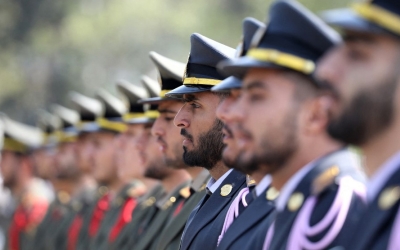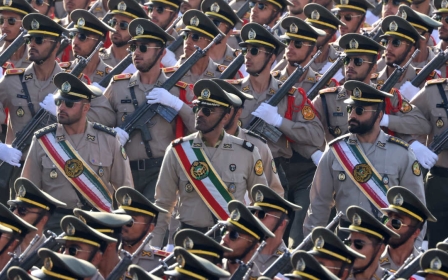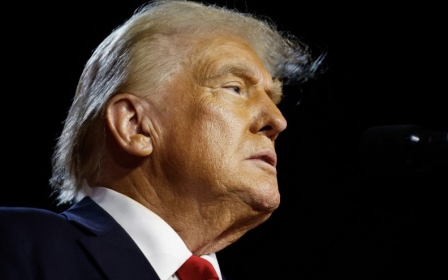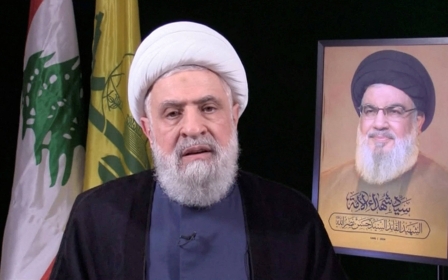Iranians view Trump's victory with shock and cautious hope
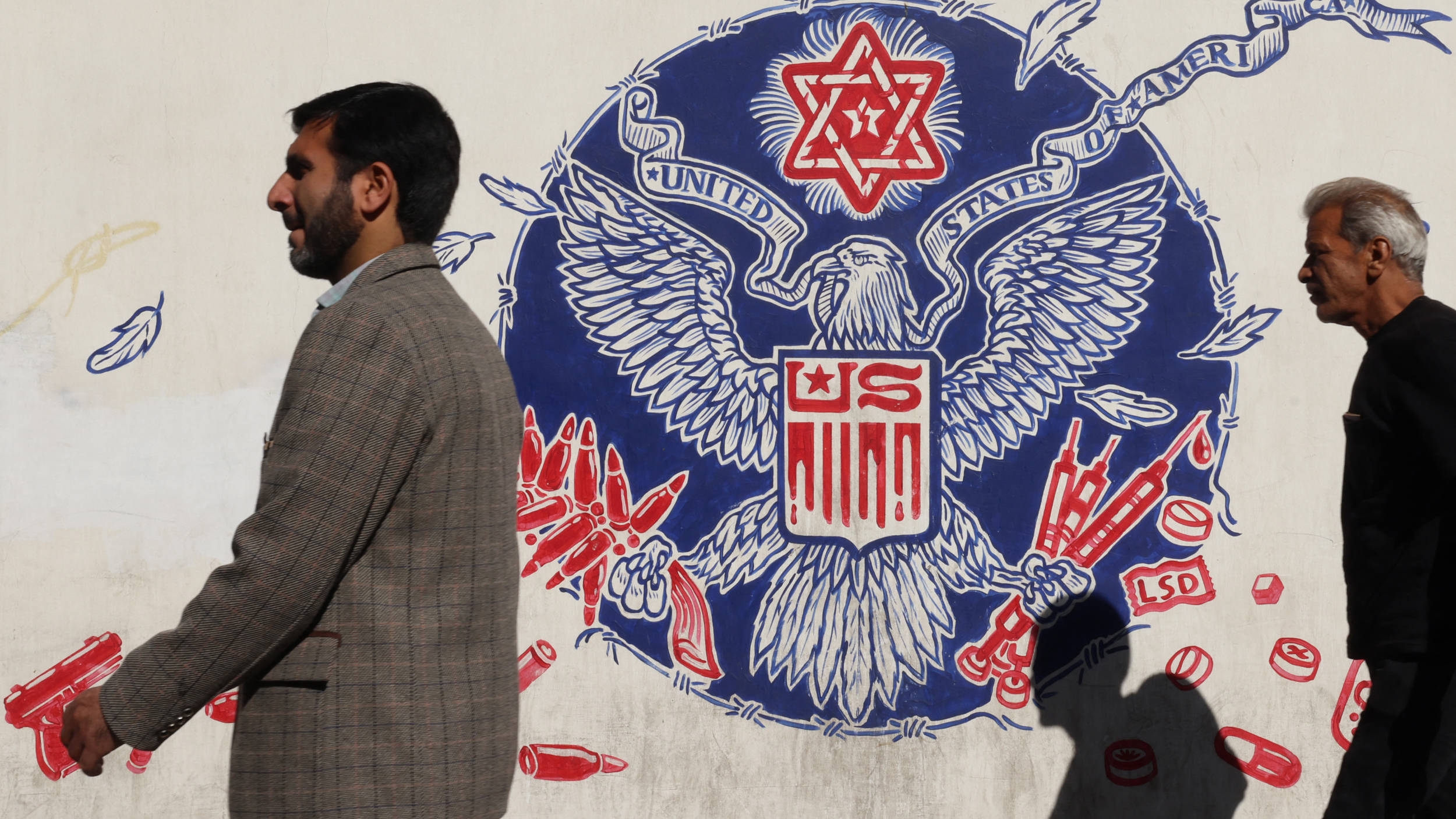
Donald Trump’s victory in the US presidential election has left Iran in a complex state of shock, as Iranians face a mix of anxiety, cautious hope, and uncertainty over what his policies might mean for the country’s economy and political standing.
During Iran's presidential election in the summer, Ali Abdolalizadeh, the head of President Masoud Pezeshkian's campaign, said: "In fact, with Trump, the chances of lifting sanctions are higher. Trump is a businessman, and we also understand the language of business well."
However, downplaying its importance and impact, Iranian officials have already announced that Tehran doesn't care who is elected in the US presidential race.
"Who becomes the next US president has no value for us. There may be changes in tactics, but there will be no change in fundamental strategies," said Abbas Araghchi, Iran's foreign minister, on the eve of the election.
Yet, with a new Trump era on the horizon, both the Iranian government and its people appear very invested in who will soon occupy the White House.
New MEE newsletter: Jerusalem Dispatch
Sign up to get the latest insights and analysis on Israel-Palestine, alongside Turkey Unpacked and other MEE newsletters
Trump is probably the most well-known US president among Iranians. In 2018, Trump withdrew from the 2015 nuclear deal with Iran, which had lifted US sanctions in return for Tehran limiting its nuclear programme.
Trump's move revived the sanctions, which have rattled and shrunk Iran's economy. Since then, the rial has depreciated dramatically, diminishing Iranians' purchasing power and pushing a large portion of the population out of the middle class.
People are now experiencing mixed feeling, with many fearing that even harder days are ahead for the country's economy.
The Iranian street
Mohsen, 31, a PhD student in Iranian history, told MEE: "I don't know what we have done wrong that God is testing us like this. On one side, the Islamic Republic is choking us, and on the other hand, the US, which claims to care about the Iranian people hypocritically, doesn't even lift the sanctions after two decades so that we can breathe easily and normally."
Today, the currency is worth about one-20th as much as it was when Iran signed the nuclear accord in 2015.
'Nobody cares about Iranians. I'm shocked to see some people who think that Trump will overthrow the Islamic Republic'
- Farzad, stock market trader
"I'm happy that Trump won because I bought $70,000 and now I can sell it at a better price and make a profit," said Reza, a real estate agent.
Asal, a young woman who has just gotten married, told MEE that while she is deeply worried about the country's economic future, she also expressed hope that Trump may succeed in pressuring Iran into a regime change.
Farzad, a trader in Iran's stock market, told MEE, "Nobody cares about Iranians. I'm shocked to see some people who think that Trump will overthrow the Islamic Republic.
"As a nationalist, any change must happen by our hands, as freedom and liberty are not found in the backpacks of US soldiers or any other foreign country."
Sara, 27, a political science student, said she was feeling sympathetic toward Pezeshkian, who, since taking office in July, has had to contend with escalating regional conflict with Israel, including Israeli attacks on Iranian soil.
"First, the Israel issue, and now Trump. I hope [Supreme Leader Ayatollah Ali] Khamenei allows him to negotiate with Trump and ink a deal," Sara said.
What is the media saying?
Kayhan newspaper, whose editor is appointed by the supreme leader, wrote: "Unlike the initial perception that paints Trump as the villain and the Democrats as angels, both Democratic and Republican administrations have shared goals and approaches when it comes to harming Iran's national interests, supporting the Zionist regime, and stirring up global unrest.
"In this dichotomy - clearly pursued within our own country by so-called reform advocates - this group, by heroising and idealising Biden, Harris, and the Democratic Party, has turned into unpaid foot soldiers for this party in Iran."
The reformist Entekhab news site quoted Mohammad Keshavarzzadeh, former ambassador to China, who remarked that pessimism about a Trump presidency is "somewhat exaggerated," emphasising that it is up to diplomats' skill to seize opportunities even during challenging times.
"In the eight-year war with Iraq, many of our dear ones were martyred, but we managed to achieve our goals through diplomacy [and negotiating with Saddam]," he said.
"Diplomacy can also be used with Trump; after all, Trump even negotiated with [North Korean leader] Kim Jong-un."
Meanwhile, principlists have started republishing Khamenei's past harsh remarks against Trump, when he rejected to exchange messages with the American president in 2019 when then Japanese Prime Minister Shinzo Abe carried a message from him to Tehran.
A political analyst, close to reformists, told MEE: "I'm hopeful about reaching a deal with Trump, as I think the Islamic Republic decision-makers are ready to do so. The thing I'm worried about is Trump's anti-Iran men and the Iranian leader's anti-US men."
'Reagan of the 21st century'
An analyst in a government institution told MEE that Iran's policy needs to be flexible during Trump's presidency, considering what is at stake for the country amid regional tensions.
"Iran should not reject any interaction or action aimed at managing tensions with Trump," he said.
"Any steps to escalate tensions with Israel will make conditions more difficult for Iran. Netanyahu is encouraging the US to increase pressure on Iran, and Iran should not continue the cycle of tension with Israel."
Another analyst close to conservatives expressed doubts about the likelihood of a US-Iran deal under Trump, given the influence of hawkish conservatives like Senator Tom Cotton.
'Iran should not reject any interaction or action aimed at managing tensions with Trump'
- Analyst in a government institution
"Cotton reportedly plays a major role in Trump's foreign policy. He represents a staunch, unyielding approach toward Iran. I agree that Trump is a dealmaker, but people like [former US Iran envoy] Brian Hook and Tom Cotton won’t easily make a deal with us," the analyst told MEE.
"In fact, it might be better for Iran if isolationists like Richard Grenell (one of Trump's closest foreign policy advisers) are appointed to his foreign policy circle."
Meanwhile, Esmail Baghai, the spokesperson for the foreign ministry, recalled Iran's "bitter experiences" with various US administrations.
He said the election provide an opportunity for Washington to review and reconsider past misguided approaches towards Iran, adding that it is also important that Tehran evaluates the actions of the US government.
Meanwhile, Hamid Aboutalebi, a former senior foreign policy official under Hassan Rouhani's presidency, suggested to Pezeshkian that he congratulate Trump on his victory in one of his speeches, just as the US offered condolences for the death of President Ebrahim Raisi.
"Trump seeks to become the Ronald Reagan of the 21st century; design and implement a new strategy to resolve the 45-year-old issues between the two countries," Aboutalebi said.
"Trump’s courage for change places Iran and the US at a historical turning point, creating a 'now or never' historical situation."
Middle East Eye delivers independent and unrivalled coverage and analysis of the Middle East, North Africa and beyond. To learn more about republishing this content and the associated fees, please fill out this form. More about MEE can be found here.


